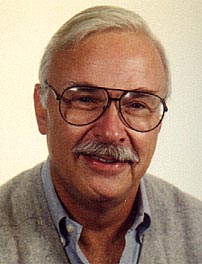|
The
United States:
Imperial
Rogue State

By
Burns
H. Weston
Bessie Dutton Murray Distinguished Professor of Law
Emeritus
Director of the University of Iowa Center for Human
Rights
TFF
associate
October 4, 2002
Published in World Editorial & International
Law (www.worldeditorial.net),
September 15, 2002
Not since the beginnings of modern-day international
law at the Hague peace conferences of 1899 and 1907 has
the United States been so contemptuous of the world rule
of law as it has in the past 20 months of Bush-Cheney
rule, since 9/11 especially.
As befits an imperial presidency unmatched since
Richard Nixon, the White House has treated the law, U.S.
as well as international, like a fence made to be
climbed.
Enthralled by solo superpowerdom, it has substantially
turned its back on a half-century's nurturing of
multilateralist diplomacy and institution-building;
snubbed hard-won consensus on international environmental
threats and trade agreements; subverted a decades-old
quest for international criminal accountability; made
fledgling democracies hostage to regressive oil politics;
ignited the militarization of space at the expense of
delicate nuclear safeguards; dismissed the law of armed
conflict in favor of "unavoidable collateral damage";
given license to horrifying human rights abuse by
conflating messianic terrorism with struggles for
self-determination; trampled time-honored constitutional
liberties in the name of patriotism; and now, while
planning an aggressive assault upon Iraq essentially
devoid of "a decent respect to the opinions of mankind,"
undermined no less than the most fundamental principles
of the United Nations Charter.
The so-called War Against Terrorism has become a
Trojan horse for arrogantly unilateralist "scofflaw"
policies, including, it seems, a quest for global empire.
How else does one explain Washington's dislodging of Mary
Robinson, the otherwise universally esteemed UN High
Commissioner for Human Rights? Or its dubiously
engineered removal of José Bustani, the much
respected Director-General of the Organization for the
Prohibition of Chemical Weapons?
At a time when, as 9/11 proved, transnational networks
unconnected with a particular state can fundamentally
disrupt both domestic and world order, such rogue state
behavior puts at least all Americans severely at risk.
Yet, seduced by apocalyptic rhetoric and fearful of being
called unpatriotic, scarcely anyone protests, not even
the international lawyers who know full well that by
flouting international law and organization the United
States dangerously alienates the very nations upon whose
allegiance its global authority depends and
simultaneously invites civil unrest by damaging our sense
of national self-respect.
With rare exception, both Congress (which seems to
have forgotten its constitutional separation-of-powers
role) and the mainstream media (which appear to have
abandoned their traditional fourth estate role) serve
generally as cheering sections for US hubris and
bellicosity. It is an appallingly hazardous mix that, I
fear, will come back to haunt and tangibly threaten the
personal security of each and every one of us, morally as
well as physically and with profound implications for
both national and international order.
Perhaps I am unduly pessimistic. Our democratic
institutions are relatively strong (or so I like to
think) and perhaps therefore things will get better come
the next election or the next. But I am not confident,
and certainly not confident that irretrievable damage
will not be done before we come to our senses. Americans
remain woefully in the grip of a history of manifest
destiny and rugged frontier individualism. It is an ethos
that goes very deep, and, unless we change, it could well
be our - and the world's - undoing.
As Yeats once cautioned, even the best of us live by
candelight.
For information about the UI Center for Human Rights,
click on <www.uichr.org>.
©
TFF & the author 2002

Tell a friend about this article
Send to:
From:
Message and your name
|